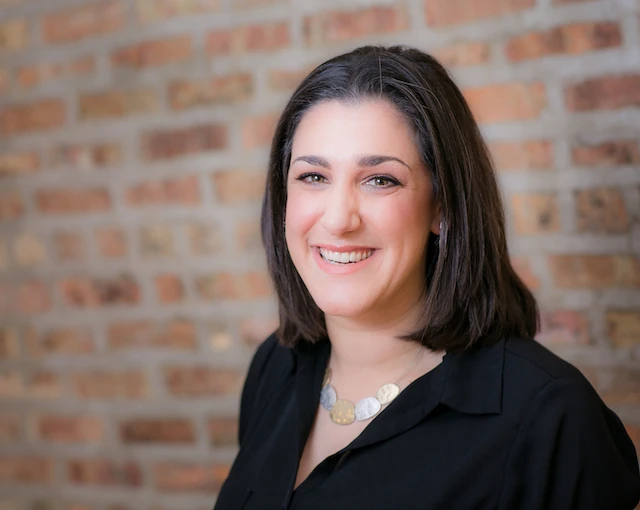This series highlights the contributions and expertise of the many talented women in the testing community. For this post, we interviewed Abby Bangser to learn about her experience. Abby is a key contributor to the community, speaking frequently at industry events, developing educational content and mentoring up-and-coming testers.
After initially planning to become a developer, Abby Bangser started out learning how to code and test at ThoughtWorks. Ultimately, she decided software testing was a better fit for her skills, personality and interests. She considers herself a “tester by choice,” which also happens to be the name of her blog. While at ThoughtWorks, Abby learned that QA is about delivering something of quality to end users, not just looking for bugs. Over the years, she developed a keen interest in working on products where fellow engineers are the users. She is currently a test engineer on the Platform Engineering team at MOO, supporting the shared infrastructure and tooling needs of the online print and design business.
We sat down with Abby to ask her about her experience as a woman in the software testing field. Here’s what she had to say.
What does it mean to you to be a woman in technology, specifically testing?
As an athlete growing up, I played many different sports and was often able to fit in as “one of the boys.” I’m used to that, but I also have grown to appreciate that you shouldn’t have to be one of a group to be effective and valued! I’ve definitely experienced sexism in the workplace, both micro-aggressions as well as more overt sexism where I’ve been dismissed from technical conversations and had team members not stand up for me. While this was painful, having these shared experiences has helped me meet many other women and allies who are welcoming and have offered me great opportunities. I’ve worked with groups like Speak Easy, whose mission is to increase diversity at tech conferences. I started there as a speaker and have grown to a mentor and now an organizational lead supporting new voices in the conference community. I’ve also worked with the Ministry of Testing, European Test Conference, and the Software Test Clinic, where I came in at an entry level and now have the opportunity to give back.
That’s the really positive side. However, sometimes you feel like you’re representing a larger group of people and not just yourself. That can be stressful.
The testing community a bit like the chef community. What I mean by that is the bulk of people in it are quite diverse, but many of the famous faces have historically been male. However, the wave is changing. There is a groundswell of well-known women in testing now. And it shouldn’t JUST be testing. Product design, development and testing benefit from being done by people from all walks of life.
What accomplishments are you most proud of? Any specific problems you’ve solved in a creative way that others could learn from?
My paired workshops at conferences have resulted in some really amazing collaborations and outcomes. I did a Distributed Development workshop with Lisa Crispin. We co-developed and presented it several times and have shared the materials for it with many organizations. It has made a big impact on people’s lives and experiences. A couple years later we developed another workshop together on Pipeline Deployment and one of our attendees turned that into a fully published card game because they took so much value from it.
I’m also particularly proud of my ability to introduce people to new ways of thinking. After working with people on certain projects, I’m able to move onto different challenges because my colleagues take away the questions I’ve asked, factor them into the process and say “OK, Abby’s going to ask us this, so let’s figure out how to answer it.”
Who have you learned the most from in this industry?
I mentioned Lisa Crispin already. She has done such a great job of giving back in our industry. She paired with me on the workshop I just mentioned in order to present with a newer person who she can help get a foot in the door. Since then, we’ve become friends and have worked together on many things. She really influenced me to do similar things to encourage others who are newer to the space.
There are so many others. Anne Marie Charrett and Fiona Charles, from Speak Easy. Also, the folks from the Ministry of Testing World: Rosie, Richard, Mark Winteringham. I admire so many of the people who have started these organizations.
On the technical side, Noah Sussman, Alan Page, Elizabeth Hendrickson, and Charity Majors have, at different stages, really helped change how people think about delivering: that QA is about speeding up delivery—not slowing it down or stopping it.
What advice would you give your younger self (or someone you were mentoring)?
If you’re just getting started, learning how to learn and how you like to learn is so important. As an example, for me, I realized that I learn best when I am doing meaningful work. Therefore, if I need to write a script, I might try writing it in another language instead of the one I’m more familiar with in order to help myself learn it and grow.
It’s also really important to be aware of burnout! Listen to people close to you. You might not notice it yourself until it’s way too late. I’ve been through it and you need to take care of yourself.
Thank you, Abby! We enjoyed learning about you and your experience.


